Buying Your First Suppressor: What You Need to Know
Suppressors, also known as silencers, have gained significant popularity among firearms and hunting enthusiasts in recent years. These devices, which attach to the muzzle of a firearm to reduce noise and muzzle flash, offer several benefits for shooters. However, for first-time buyers, the process of purchasing a suppressor can seem complex and intimidating. This comprehensive guide will walk you through everything you need to know about buying your first suppressor.
Understanding Suppressors
Before delving into the purchasing process, it’s crucial to understand what suppressors are and how they work. Contrary to popular belief, suppressors do not completely silence a firearm. Instead, they typically reduce the noise level by 20 to 35 decibels, which is roughly equivalent to high-quality hearing protection.
Suppressors function by trapping and cooling the expanding gases that exit the muzzle when a round is fired. This process reduces both the sound and the visible muzzle flash. The benefits of using a suppressor include hearing protection, reduced recoil, improved accuracy, decreased muzzle flash and an enhanced shooting experience for new shooters.
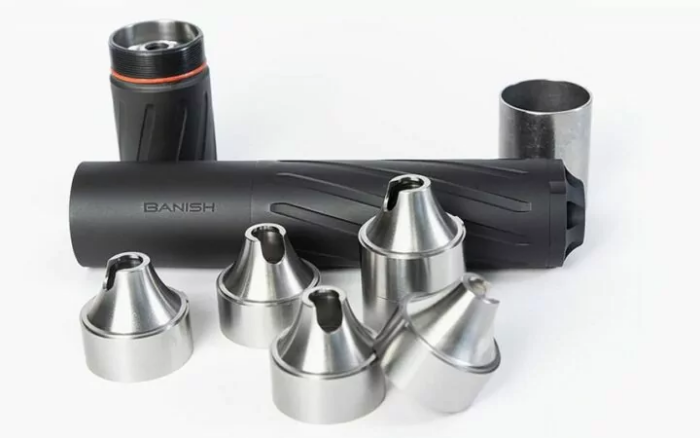
Legal Considerations
One of the most critical aspects of buying a suppressor is understanding the legal landscape. In the United States, suppressors are regulated under the National Firearms Act (NFA) of 1934. This means that the process of purchasing a suppressor is more involved than buying a standard firearm.
As of 2024, suppressors are legal for private ownership in 42 states. However, it’s essential to check your local laws, as some states may have additional restrictions or requirements. Always ensure you’re in full compliance with federal, state and local regulations before proceeding with a suppressor purchase.
The Purchasing Process
Buying a suppressor involves several steps, which can seem daunting at first but are manageable with proper guidance. First, you’ll need to choose your suppressor by researching different models and brands to find one that suits your needs and budget. Next, you’ll need to find a licensed dealer who is a Class 3 Special Occupational Taxpayer (SOT) and can sell NFA items.
Once you’ve selected your suppressor and dealer, you’ll need to pay for the suppressor, which includes both the cost of the device itself and a $200 tax stamp required by the NFA. You’ll then need to complete Form 4, the ATF form required for the transfer of NFA items to an individual or trust. This process also involves submitting fingerprints and photographs as part of the background check. After submitting all the necessary paperwork and fees, you’ll need to wait for approval. The ATF typically takes 4 to 12 months to process and approve Form 4 applications, however the ATF’s eForm 4 system can significantly reduce wait times compared to traditional paper Form 4 submissions (sometimes in a matter of days). Once approved, you can finally take possession of your suppressor from the dealer.
Purchasing through online companies such as Silencer Shop and Silencer Central can help take much of the guesswork out of the process for first-time buyers. They handle all the complex NFA paperwork for you, including Form 4 submission, fingerprints and photographs. They can both also ship suppressors directly to your door in all 42 states where suppressors are legal. This eliminates the need to visit a local dealer for pickup, saving you time and hassle.
Choosing the Right Suppressor
When selecting your first suppressor, there are several factors to consider. First and foremost, ensure the suppressor is rated for the caliber(s) you intend to use it with. Consider the material of the suppressor – options typically include stainless steel, titanium or Inconel, each with its own pros and cons in terms of durability, weight and cost.
Suppressors are available for a wide range of calibers, from .22 LR rimfire to large-bore rifle calibers. Some popular options include:
- .22 LR suppressors: Ideal for rimfire rifles and pistols, these are often the most affordable and quietest options.
- 9mm suppressors: Suitable for many popular handguns and pistol-caliber carbines.
- .30-caliber suppressors: Versatile options that can be used with many common rifle calibers like .308 Winchester, 300 Blackout and 5.56 NATO offering flexibility for shooters with multiple firearms.
- .45-caliber suppressors: For larger pistol calibers and some rifle cartridges.
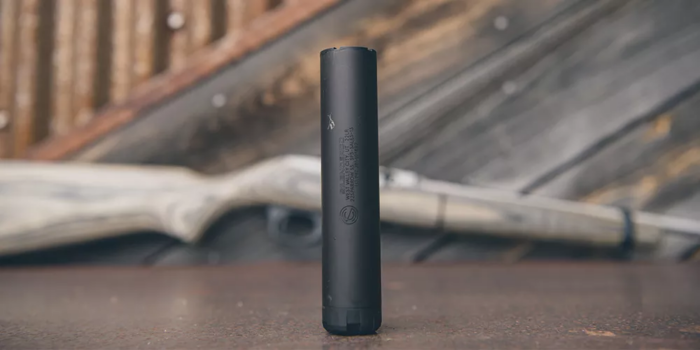
When choosing a caliber, consider not just your current firearms but also any you might acquire in the future. Many shooters opt for a suppressor that can accommodate the largest caliber they own or plan to own, as you can often use a larger suppressor on smaller calibers but not vice versa.
The mounting system is another important consideration. Direct thread or quick-detach (QD) mounts are common options, with QD mounts offering more flexibility but potentially at a higher cost. Size and weight should also factor into your decision, as these will affect your firearm’s balance and handling.
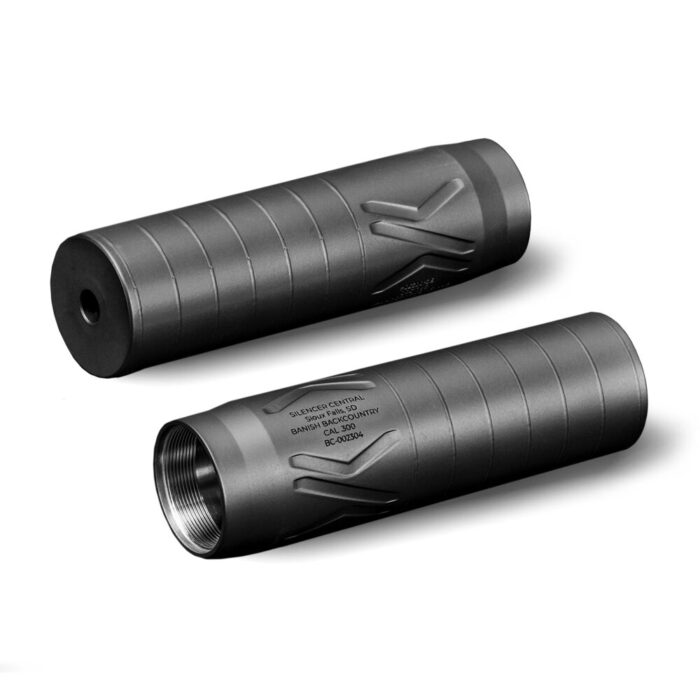
Also keep in mind that flow-through suppressors reduce gas blowback on modern sporting rifles. If you plan on high-volume shooting, look for suppressors rated for full-auto use, as they tend to be more durable. Finally, research reputable manufacturers known for quality and customer support to ensure you’re getting a reliable product.
The Role of Trusts
Many suppressor buyers choose to purchase their NFA items through a gun trust. A gun trust is a legal entity that can own NFA items, offering several advantages. Multiple users can be authorized to possess and use the suppressor, the transfer process to beneficiaries upon the owner’s death is simplified, and in some cases, approval times may be faster.
If you’re considering this option, it’s advisable to consult with a lawyer experienced in NFA trusts to determine if it’s the right choice for your situation. If you decide it’s a good fit for you, Silencer Central offers a free NFA gun trust with every suppressor purchase. This can be a significant cost saving and convenience factor for many buyers.
Maintenance and Care
Proper maintenance is crucial for ensuring the longevity and performance of your suppressor. Clean your suppressor according to the manufacturer’s recommendations and use a thread protector when the suppressor is not mounted. Regularly check for carbon build-up and clean as needed. It’s also important to inspect for damage or wear regularly and store your suppressor in a cool, dry place to prevent corrosion.
Common Myths and Misconceptions
There are several myths surrounding suppressors that are worth addressing. Contrary to popular belief, suppressors are legal in most states, although they are regulated. They do not completely silence a firearm but rather reduce noise to a safer level. Suppressors are available to civilians in most states, subject to federal regulations, not just to special agents or military personnel.
It’s also a misconception that suppressors significantly reduce a firearm’s velocity or make it less accurate. In fact, they often improve accuracy by reducing recoil and muzzle rise.
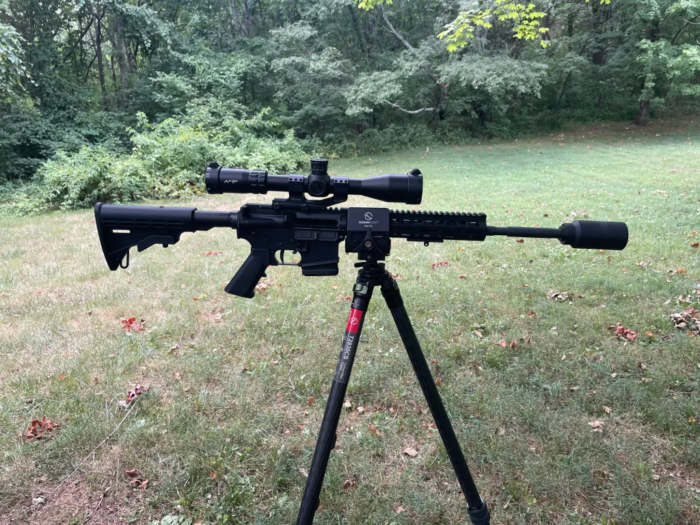
The Future of Suppressor Regulation
As of 2024, there are ongoing efforts to deregulate suppressors at the federal level. The Hearing Protection Act, which aims to remove suppressors from NFA regulation, has been introduced in Congress multiple times. While its passage remains uncertain, it’s worth keeping an eye on potential changes in legislation that could affect the suppressor buying process in the future.
Buying your first suppressor can be a complex but rewarding process. By understanding the legal requirements, choosing the right suppressor for your needs and following proper maintenance procedures, you can enjoy the many benefits these devices offer. Remember to always comply with federal, state and local laws regarding suppressor ownership and use.
As with any significant firearm-related purchase, take the time to research thoroughly, ask questions and consult with experienced professionals. With patience and diligence, and potentially by taking advantage of services like those offered by online services like Silencer Shop and Silencer Central, you’ll be well on your way to enhancing your shooting experience with your very own suppressor.
Read the full article here







